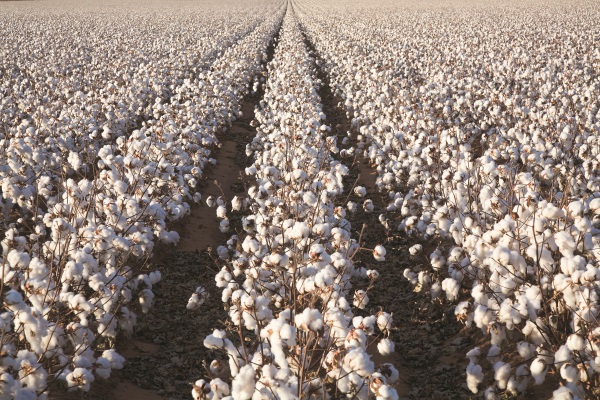New Research Shows How Consumer Consciousness Impacts Purchasing Decisions
Global insights released by COTTON USA reveal that consumer purchase decisions for clothing are being influenced by growing concerns for the environment and sustainability, and how being transparent about the use of natural fibers – including U.S. cotton – can be valuable for global brands and retailers.
The study was commissioned by Cotton Council International, a non-profit trade association that promotes U.S. cotton fiber and manufactured cotton products globally using the COTTON USA mark, and was led by Harris Insights and Analytics.
The research found that 86% of people globally are considering sustainability and the impact their decisions have on the environment across various parts of day-to-day life. This is a growing concern, as 57% of people also say that they have thought more about sustainability over the past year.
While COTTON USA’s insights found that consumers are most concerned about sustainability in areas including food, appliances and vehicle purchases, 61% of those surveyed say that they are concerned about sustainability and environmental impacts when purchasing clothing – with nearly two-thirds saying they would put additional effort into finding clothing labeled as “environmentally-friendly.”
When consumers were asked why they are concerned about sustainability:
- 38% said that supporting brands and retailers that are making a conscious positive impact on the environment was very important
- 35% noted they would take a stand against those brands and companies that do not treat their employees fairly
- 33% said they would avoid brands and retailers that do not demonstrate sustainability practices as part of their manufacturing process.
An overwhelming majority – 83% – of global consumers surveyed believed cotton is safe for the environment, with 69% considering U.S. cotton as an environmentally-safe choice. In addition, 100% of consumers associate cotton fibers – including U.S. cotton – with sustainability, more so than other fabrics such as wool, silk, polyester, rayon or spandex.
When asked how they perceive U.S. cotton, consumers considered it to be more sustainable (39%), responsibly produced (40%) and higher quality (43%) than cotton grown in other parts of the world. Sixty-nine percent considered U.S. cotton to be a more environmentally friendly choice than cotton from other global markets, including Australia (65%), India (64%), Africa (60%), China (56%) or Uzbek (53%).
“It is imperative that global brands and retailers today establish and maintain a strong image of sustainability and be transparent with consumers about the measures they are taking,” said Stephanie Thiers-Ratcliffe, Director of European Brands at Retailers at COTTON USA. “One way for global brands and retailers to connect with consumers about sustainability may be to promote their use of natural fibers, such as U.S. cotton – which, from our research, is evidently considered worldwide as an environmentally-friendly option.
“By establishing and demonstrating a stronger alliance with cotton, brands and retailers can better build an invaluable, trusting relationship with their customer based on what is truly important to them today.”
Based on information provided by Cotton Council International









